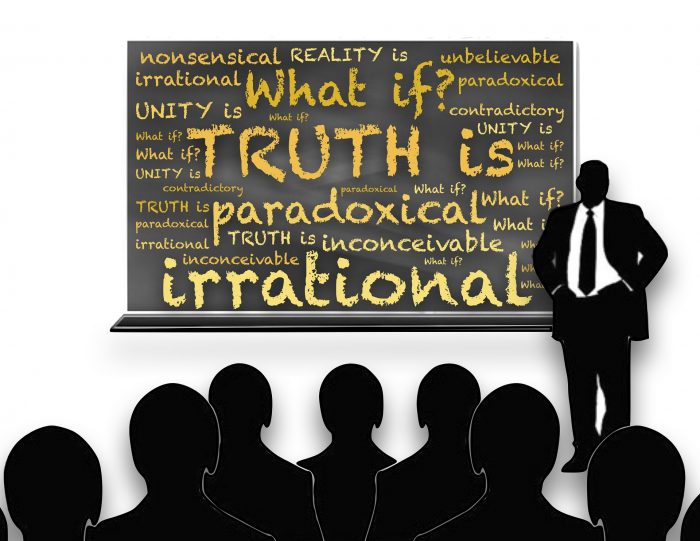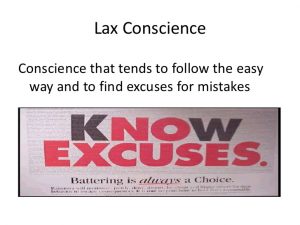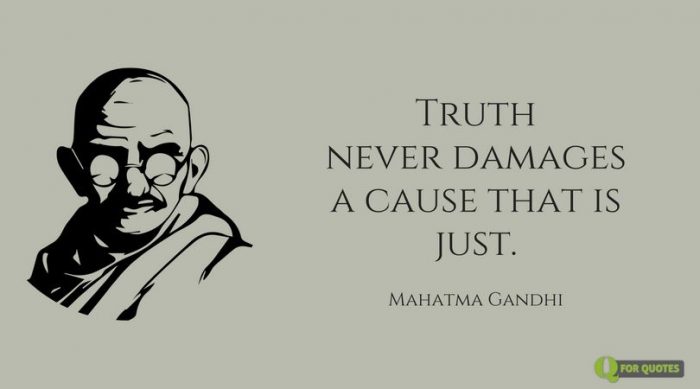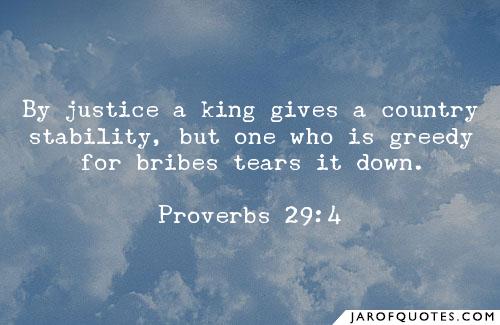
Page Description
Discover ‘To Clarify the Idea Behind the Website,’
where we explain the concept of justice,
its principles,
and how it shapes our content and mission.
What if truth is inconceivable,
paradoxical, irrational,
nonsensical, unbelievable?
Nonsensical
Silly or stupid:
It’s nonsensical to blame all the world’s troubles on one man.
Their methods of assessment produce nonsensical results.
Cambridge Dictionary
Inconceivable
Impossible to imagine or think of:
The idea that they might not win was inconceivable to them.
It would be inconceivable for her to change her mind.
Extremely unlikely:
Another nuclear accident in the same place is virtually/almost inconceivable.
It is not inconceivable (= it is possible) that she could be lying.
Cambridge Dictionary
Unraveling the Paradox of Justice and Truth
This website explores the intricate and often paradoxical nature of justice, truth, and human perception. What if truth is inconceivable, irrational, or even nonsensical? Justice, in its purest form, reflects the essence of life—honesty, humanity, and the freedom to be oneself. Yet, when the system falters, justice can devolve into something flawed, unreliable, and at odds with reality.
Through thought-provoking observations, candid camera recordings, and real-world examples, this website examines how justice can become arbitrary, a construct that defies its own moral compass. It invites you to question what justice truly means and challenges the notion that it is always fair or absolute. Here, conscience takes center stage, as we navigate the complexities of a justice system that, at times, seems to stand still. Seems to stand still’ means a justice system that too often delays, hesitates, or fails to act when it should—a system that sometimes grinds to a halt, leaving lives in uncertainty.
Het Ontrafelen van de Paradox van Gerechtigheid en Waarheid
Deze website onderzoekt de ingewikkelde en vaak paradoxale aard van gerechtigheid, waarheid en menselijke perceptie. Wat als waarheid onbegrijpelijk, irrationeel of zelfs onzinnig is? Gerechtigheid, in zijn puurste vorm, weerspiegelt de essentie van het leven—eerlijkheid, menselijkheid en de vrijheid om jezelf te zijn. Doch, wanneer het systeem faalt, kan gerechtigheid vervallen tot iets gebrekkigs, onbetrouwbaars en in tegenspraak met de werkelijkheid.
Door middel van prikkelende observaties, candid-camera-opnamen en voorbeelden uit de praktijk onderzoekt deze website hoe gerechtigheid arbitrair kan worden, een constructie die haar eigen morele kompas tart. Het nodigt je uit om te bevragen wat gerechtigheid werkelijk betekent en daagt de opvatting uit dat het altijd eerlijk of absoluut is. Hier komt het geweten centraal te staan, terwijl we navigeren door de complexiteit van een rechtssysteem dat soms lijkt stil te staan. Lijkt stil te staan’ betekent een rechtssysteem dat te vaak vertraagt, aarzelt of nalaat te handelen wanneer dat nodig is – een systeem dat soms tot stilstand komt en levens in onzekerheid achterlaat.
Justice is
- The nature of life;
- where people can just be themselves;
- life as it is;
- honesty is the best policy;
- the moral compass;
- humanity;
- without pretense;
- justice is a state of mind.
When you notice something fishy, the perception changes...
- Justice becomes a substitute, a flawed system…
- The flawed system is like deceiving someone, as in the candid camera recordings on the website, where a bizarre situation is simulated, something that doesn’t happen in real life…
- It’s like twisted elements being used with the intention of causing justice to come to a complete standstill…
- A justice system that is stuck, so that a construction can be put together…
- In other words, conscience is thrown overboard.
Observation:
- justice can be unreliable,
- absurd and utterly meaningless,
- contrary to what perception tries to make us believe.
- Justice is not a neatly streamlined process,
- on the contrary, it is sometimes completely arbitrary.
- This is a paradox that is hard to imagine.
- Justice cannot pretend…
Justice
- should not act without purpose,
- should not be arbitrary, contrary to the reality of life.
Justitie is
- de naturel van het leven;
- waar mensen heel gewoon kunnen zijn;
- het leven zoals het is;
- eerlijk is eerlijk;
- het moreel kompas;
- menselijkheid;
- zonder schone schijn;
- justitie is een gemoedstoestand;
Als je aan een of ander merkt dat er iets doorgestoken kaart is, dan verandert de beeldvorming …
- Justitie wordt een subsituut nl. een fout systeem …
- Het fout systeem is zoals iemand voor de gek houden zoals in de candid camera opnamen in de website, waar men een erg bizarre situatie simuleert, iets die in het werkelijke leven niet voorkomt …
- Het is zoals verwrongen elementen die worden gebruikt met de intentie dat justitie volledig zou vastlopen …
- Een justitiesysteem die vierkant draait, zodat men kan een constructie in elkaar steken …
- M.a.w. het geweten wordt overboord gegooid.
Vaststelling:
- justitie kan onbetrouwbaar zijn,
- ongerijmd en volstrekt zinloos,
- in strijd met wat de perceptie tracht wijs te maken.
- Justitie is niet een mooi gestroomlijnd gebeuren,
- in tegendeel het is soms volstrekt willekeurig.
- Dit is een zich moeilijk voorstelbare paradox.
- Justitie kan niet doen alsof …
Justitie:
- hoort niet zinloos te handelen,
- geen willekeur, haaks op de werkelijkheid van het leven.
Insane Street Performance with Calum Scott
Insane Street Performance with Calum Scott 🤯
1 okt 2025
Calum just released “I Wanna Dance With Somebody” as an epic duet with the legendary @whitneyhoustonmusic. You can check it out now on all streaming platforms! 🎶
Big thanks to Covent Garden for having us!


Een laks geweten
Een geweten dat de neiging heeft
de gemakkelijke weg te kiezen en
excuses te zoeken voor fouten.
Frantz brengt een zeer ontroerend eerbetoon aan zijn adoptiemoeder
20 jaar later keert Frantz terug naar de set
Dancing on Tatami (story two)
The concept of justice is complex and multifaceted, and there are different philosophical theories and perspectives on what constitutes justice. However, some key points or principles that are often considered important in discussions about justice include:
Fairness: Justice involves treating individuals and groups fairly and impartially, without discrimination or bias. It emphasizes equal treatment under the law and equal opportunities for all individuals, regardless of their background, identity, or status.
Equality: Justice often involves the principle of equality, which means that all individuals have the same rights, privileges, and protections. It can include equal access to resources, benefits, and opportunities, as well as equal distribution of burdens and responsibilities.
Rights and liberties: Justice recognizes and upholds the fundamental rights and liberties of individuals, such as the right to life, liberty, and property, freedom of speech, religion, and assembly, and the right to a fair and impartial trial. It also involves protecting individual rights from infringement by others, including the state or other individuals or groups.
Impartiality and neutrality: Justice requires impartiality and neutrality in decision-making, where decisions are made based on objective criteria and without favoritism, bias, or prejudice. It involves treating all parties equally and without discrimination, and making decisions based on reason, evidence, and the rule of law.
Restitution and reparation: Justice may involve addressing harms and injustices through restitution and reparation. This can include compensating victims of injustice, repairing the harm caused, and restoring individuals or groups to their rightful position or status before the injustice occurred.
Social utility: Justice may also consider the greater good or social utility, where actions or policies are evaluated based on their potential to benefit society as a whole. This can involve balancing competing interests and considering the consequences of actions or policies on the well-being of individuals and communities.
Procedural fairness: Justice often includes procedural fairness, which means that fair and transparent procedures are followed in decision-making and that individuals have the right to participate in the process, be heard, and have access to legal representation. Procedural fairness also involves ensuring that decisions are made based on reliable and credible evidence, and that the process itself is impartial and unbiased.
Human dignity: Justice may recognize and protect the inherent dignity and worth of all human beings. It involves treating individuals with respect and dignity, regardless of their status or circumstances, and upholding their basic human rights and freedoms.
Accountability and responsibility: Justice may involve holding individuals or entities accountable for their actions and responsibilities. This can include accountability for violations of laws, regulations, or ethical standards, and taking responsibility for the consequences of one’s actions.
Rule of law: Justice often upholds the principle of the rule of law, where laws are applied consistently, transparently, and impartially, and where individuals are subject to the same laws and held accountable for their actions. The rule of law also involves the idea that no one is above the law, including government officials, and that the law itself is just and fair.
It’s important to note that the concept of justice is complex and can vary depending on cultural, social, and philosophical perspectives. Different theories of justice, such as distributive justice, retributive justice, and restorative justice, may emphasize different principles or emphasize certain aspects of justice more than others.
Het concept van rechtvaardigheid is complex en veelzijdig, en er bestaan verschillende filosofische theorieën en perspectieven over wat rechtvaardigheid inhoudt. Enkele belangrijke punten of principes die vaak als belangrijk worden beschouwd in discussies over rechtvaardigheid zijn:
Gelijkheid: Rechtvaardigheid houdt vaak het principe van gelijkheid in, wat betekent dat alle individuen dezelfde rechten, voorrechten en bescherming hebben. Dit kan gelijke toegang tot middelen, voordelen en kansen omvatten, evenals een eerlijke verdeling van lasten en verantwoordelijkheden.
Rechten en vrijheden: Rechtvaardigheid erkent en beschermt de fundamentele rechten en vrijheden van individuen, zoals het recht op leven, vrijheid en eigendom, de vrijheid van meningsuiting, godsdienst en vergadering, en het recht op een eerlijke en onpartijdige rechtsgang. Het beschermt ook individuele rechten tegen schending door anderen, inclusief de staat of andere individuen of groepen.
Onpartijdigheid en neutraliteit: Rechtvaardigheid vereist onpartijdigheid en neutraliteit in besluitvorming, waarbij beslissingen worden genomen op basis van objectieve criteria en zonder favoritisme, vooroordelen of partijdigheid. Het gaat om het gelijk behandelen van alle partijen zonder discriminatie, en het nemen van beslissingen op basis van rede, bewijs en de wet.
Herstel en compensatie: Rechtvaardigheid kan ook inhouden dat schade en onrecht worden hersteld door middel van compensatie en herstel. Dit kan onder meer het compenseren van slachtoffers van onrecht, het herstellen van de aangerichte schade en het terugbrengen van individuen of groepen in hun rechtmatige positie of status van vóór het onrecht.
Maatschappelijk nut: Rechtvaardigheid kan ook rekening houden met het grotere goed of maatschappelijk nut, waarbij handelingen of beleid worden geëvalueerd op hun potentieel om de samenleving als geheel ten goede te komen. Dit kan inhouden dat er een evenwicht wordt gezocht tussen tegengestelde belangen en de gevolgen van handelingen of beleid voor het welzijn van individuen en gemeenschappen.
Procedurele rechtvaardigheid: Rechtvaardigheid omvat vaak procedurele rechtvaardigheid, wat betekent dat eerlijke en transparante procedures worden gevolgd bij besluitvorming en dat individuen het recht hebben om deel te nemen aan het proces, gehoord te worden en toegang te hebben tot juridische vertegenwoordiging. Procedurele rechtvaardigheid houdt ook in dat beslissingen worden genomen op basis van betrouwbaar en geloofwaardig bewijs en dat het proces zelf onpartijdig en onbevooroordeeld is.
Menselijke waardigheid: Rechtvaardigheid kan de inherente waardigheid en waarde van alle mensen erkennen en beschermen. Het houdt in dat individuen met respect en waardigheid worden behandeld, ongeacht hun status of omstandigheden, en dat hun fundamentele mensenrechten en vrijheden worden gehandhaafd.
Verantwoordelijkheid en rekenschap: Rechtvaardigheid kan ook inhouden dat individuen of entiteiten verantwoording moeten afleggen voor hun daden en verantwoordelijkheden. Dit kan het aanspreken van mensen zijn op schendingen van wetten, regels of ethische normen, en het nemen van verantwoordelijkheid voor de gevolgen van hun daden.
Rechtsstaat: Rechtvaardigheid ondersteunt vaak het principe van de rechtsstaat, waarbij wetten consequent, transparant en onpartijdig worden toegepast en waarbij individuen onderworpen zijn aan dezelfde wetten en verantwoordelijk worden gehouden voor hun daden. De rechtsstaat houdt ook het idee in dat niemand boven de wet staat, inclusief overheidsfunctionarissen, en dat de wet zelf rechtvaardig en eerlijk is.
Het is belangrijk op te merken dat het concept van rechtvaardigheid complex is en kan variëren afhankelijk van culturele, sociale en filosofische perspectieven. Verschillende theorieën van rechtvaardigheid, zoals verdelende rechtvaardigheid, vergeldende rechtvaardigheid en herstelrecht, kunnen verschillende principes benadrukken of bepaalde aspecten van rechtvaardigheid sterker benadrukken dan andere.

1 Anita Meyer in Bananasplit 1984
Youp van ‘t Hek’s Commentary on T-Mobile – A Critique of Corporate Power
1 Youp van ‘t Hek over T-Mobile
2 Buckler Fiasco Uitgelegd
Summary:
In this segment, Dutch comedian Youp van ‘t Hek shares his sharp critique of T-Mobile, focusing on the frustrations and challenges that consumers face with the company’s customer service. With his signature humor, Youp highlights how large corporations, like T-Mobile, often seem disconnected from the real needs of their customers, prioritizing profit over service. His commentary is both comedic and insightful, shedding light on the growing discontent with corporate practices in the telecom industry.
Youp van ‘t Hek’s commentaar op T-Mobile – Een kritische blik op de macht van bedrijven
Samenvatting:
In dit fragment deelt de Nederlandse comedian Youp van ‘t Hek zijn scherpe kritiek op T-Mobile, waarbij hij zich richt op de frustraties en uitdagingen die consumenten ondervinden met de klantenservice van het bedrijf. Met zijn kenmerkende humor benadrukt Youp hoe grote bedrijven, zoals T-Mobile, vaak lijken los te staan van de echte behoeften van hun klanten, waarbij winst boven service wordt gesteld. Zijn opmerkingen zijn zowel komisch als inzichtelijk en werpen een licht op de groeiende onvrede over de praktijken van bedrijven in de telecomindustrie.
Instant Accomplice: A Wedding Ring Given to a Stranger – A Social Experiment
2 Instant Accomplice – Wife Gives Wedding Ring to Hobo
27 jul. 2013
In this lighthearted prank, unsuspecting strangers are recruited to play a joke on their partners. When a homeless man asks for change, they instead offer their wedding rings, leading to unexpected reactions. A humorous look at human empathy and spontaneous decisions.
Direct Medeplichtige: Een Trouwring Gegeven aan een Vreemdeling – Een Sociaal Experiment
In deze luchtige prank worden onschuldige voorbijgangers gevraagd om mee te doen aan een grap met hun partner. Wanneer een dakloze om geld vraagt, bieden zij in plaats van wisselgeld hun trouwringen aan, wat leidt tot verrassende reacties. Een humoristische blik op menselijke empathie en spontane beslissingen.